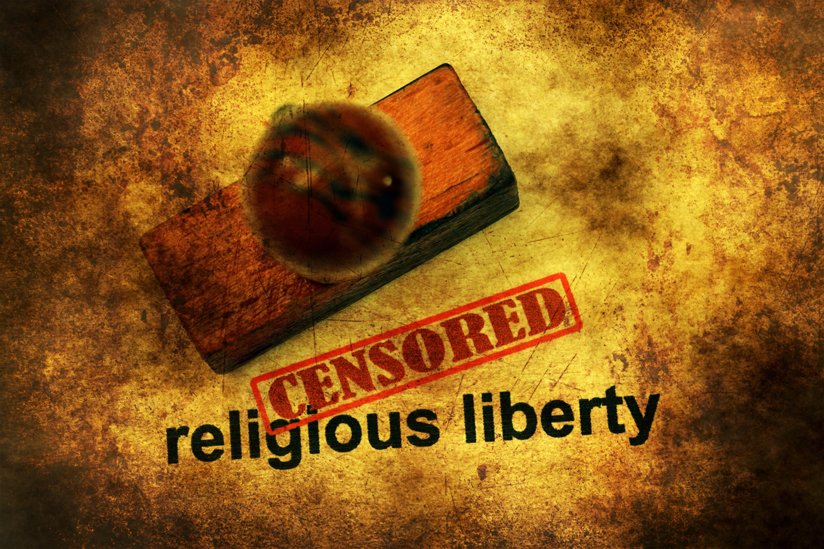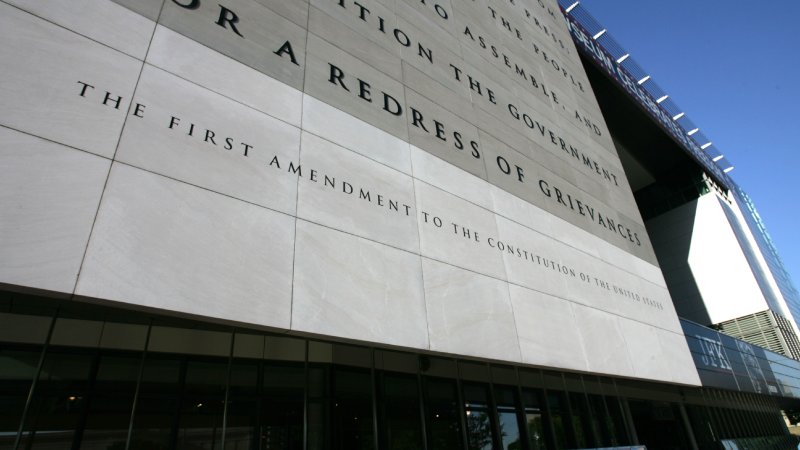
-
HOME
-
WHAT IS STANDOur Mission Our Values Our Help Contact
-
WHAT WE FIGHT FORReligious Freedom Religious Literacy Equality & Human Rights Inclusion & Respect Free Speech Responsible Journalism Corporate Accountability
-
RESOURCESExpert Studies Landmark Decisions White Papers FAQs David Miscavige Religious Freedom Resource Center Freedom of Religion & Human Rights Topic Index Priest-Penitent Privilege Islamophobia
-
HATE MONITORBiased Media Propagandists Hatemongers False Experts Hate Monitor Blog
-
NEWSROOMNews Media Watch Videos Blog
-
TAKE ACTIONCombat Hate & Discrimination Champion Freedom of Religion Demand Accountability
Freedom of Speech Versus the Freedom to Lie
A couple of weeks ago I set out to research the scope of freedom of speech. I was well aware that the First Amendment was not absolute. There are laws on the books that make libel and slander illegal. Incitement to violence is also forbidden. But I was unaware of how high a priority our Founding Fathers, and later the courts, assigned to free speech, and how far it could be pushed.

A few examples in which lying was ruled by courts to be protected speech:
- In New York Times v Sullivan in 1964, the Supreme Court declared that false statements made about public officials could not be the basis for awarding damages in a defamation case unless it could be proven that they were made recklessly or with knowledge of their falsity. In effect, if malice, a state of mind, could not be proven, there was no case. Over the years, this ruling was interpreted to include public figures, even those who become public figures by reason of a high-profile dispute. The courts feared that, without this protection, true statements might be suppressed out of concern they would later be proven false or ruled false by a biased jury.
- Hustler Magazine v Falwell in 1988 concerned a defamation suit in which high-profile TV minister Jerry Falwell sued Hustler for printing that he engaged in drunken sex with his mother in an outhouse. The Supreme Court ruled that Hustler’s assertion was protected speech under the First Amendment because a reasonable person would recognize it as a ridiculous assertion. (Observing what some on social media buy into, I suspect the court may have overestimated the reasoning power of more than a few of our fellow citizens.)
- In Rickert v Washington in 2007, the Washington State Supreme Court ruled that a Green Party state senate candidate could not be fined for making false statements in a campaign brochure because it would be naïve to assume that “government is capable of correctly and consistently negotiating the thin line between fact and opinion in political speech.” (Again, a flat-out lie was ruled to be protected speech.)
- And finally, in United States v Alvarez in 2012, the Supreme Court ruled that a politician who falsely claimed he was a 25-year Marine veteran and Congressional Medal of Honor recipient could not be prosecuted under the Stolen Valor Act, which calls for prison terms for anyone who “falsely represents himself or herself, verbally or in writing, to have been awarded any decoration or medal authorized by Congress for the Armed Forces of the United States.” The Stolen Valor Act was ruled too broad in scope and thus in violation of the First Amendment.
This wide latitude given to free speech in the United States explains why some anti-Scientology hit pieces published or broadcast in the U.S. are not published or broadcast in the United Kingdom. There are no overriding First Amendment protections in the UK. On that side of the pond, publications and media outlets know that publishing or broadcasting destructive hate speech might well open the door to lawsuits they would lose.
Freedom of speech is a precious gift bequeathed to us by our Founding Fathers. Anti-Scientologists routinely abuse that right. I could now proclaim that even though I detest what the haters say about my church, I will defend their right to say it. But I won’t. It would be a lie. Why on earth would I want to defend the abuse of this precious right by for-profit hatemongers?
The good news is there’s broad speculation that the Supreme Court will soon revisit these issues. Let’s pray that, in their wisdom, the justices find a way to strike a better balance between our right to free speech and protections against outright lies.









